BUILDEX Vancouver 2020
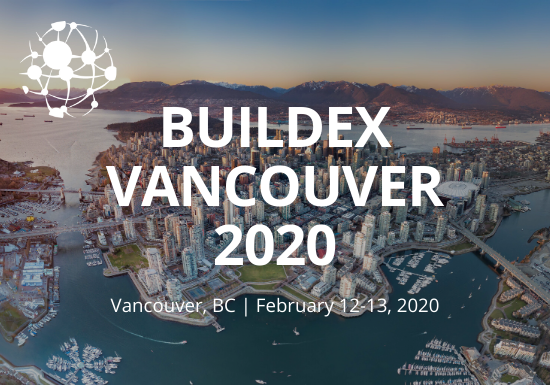
BUILDEX Vancouver is Western Canada’s largest trade show and conference for the construction, renovation, architecture, interior design, and property management industries. With more than 600 exhibits and 90 accredited seminars, BUILDEX attracts 14,000 attendees annually. This year, BUILDEX Vancouver is being held at the Vancouver Convention Centre West from February 12-13, 2020.
Integral Group will be represented by 8 speakers at this year’s BUILDEX conference. Read more about each session below:
DAY 1 | Wednesday, February 12, 2020
BIM Collaboration at YVR – Panel Case Study | 12:00pm-1:00pm
YVR is constructing a new Central Utilities Building (CUB) that will centralize all of the equipment needed to meet the airport’s heating, cooling and electrical demand. The project includes construction of one of the largest geo-exchange systems in Canada, to provide sustainable heating and cooling for the terminal, and associated mechanical and electrical (M&E) infrastructure upgrades. The Airport’s complex existing conditions and ongoing airport operations are factors that pose a challenge in the design and construction of the projects.
In this panel you will hear Integral, EllisDon and Fred Welsh Ltd. speak to the existing terminal upgrades, which requires multiple existing major M&E rooms inside the domestic and international terminals to be fully upgraded. At the earliest onset of design, point cloud laser scanning work took place inside the major M&E rooms to collect and digitize the existing conditions. The main Architectural, Structural and MEP systems were created from the point cloud data, at a high level, using Revit 2018. The “Existing Conditions Models” were then used as the base to begin new design development for the terminal upgrades. New design was also done in Revit 2018 with BIM360 at a level of development (LOD) of 200 to 300. Trades followed and developed “fabrication models” at LOD 350. BIM coordination and clash detection regularly occurred using Navisworks 2018 and Revizto throughout Design and Construction. In locations where existing conditions and phasing issues became a major design and constructability challenges the team entered into a design-build collaboration process and optimize both design and construction.
This case study panel will discuss, reflect and take questions on the opportunities, challenges and experiences of using BIM to collaborate on this project as well as share lessons for the next.
Speakers:
- Mazdak Pourbohloul | Fred Welsh Ltd.
- Ashley Saidi | EllisDon
- Matt Tarnowski, Associate | Integral Group
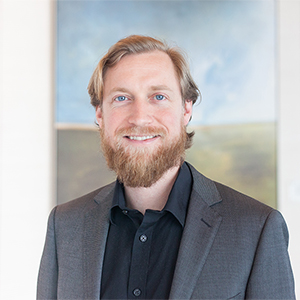
Electrification at Scale – University of Victoria Passive House Residence | 2:00pm-3:00pm
With two buildings of eight and eleven storeys totaling over 31,000 m² including a commercial kitchen, the University of Victoria Student Housing and Dining project will serve as an important example and raise the bar for student housing at Canadian and international post-secondary institutions. With a deep commitment to climate action and greenhouse gas mitigation, the University of Victoria has directed that its new 782-bed student housing and dining project be designed & constructed to meet Energy Step Code level 4, Passive House, and LEED v4 certification. Realizing this level of performance requires focus, creativity, and constant evaluation of performance measures. With the project slated to open in the fall of 2022, the presentation will share various perspectives on meeting the University of Victoria’s performance aspirations, modeling results, and trade-offs in systems and programs required to realize Passive House certification at this scale.
Speakers:
- Kaz Bremner | Perkins + Will
- Ruffy Ruan, Project Manager | Integral Group
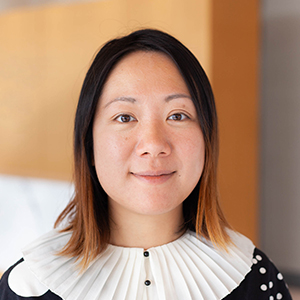
Designing with Light in 2020: Challenges and Opportunities of a New Era | 3:00pm-4:00pm
Designing with light is not what it was 20 years ago. The rapid shifts in lighting technology, information and lighting integration, code requirements, carbon footprint targets, resilient design and occupant health and well-being standards are just a few of the many new challenges to consider when it comes to interior and exterior lighting today. End-users are aiming for more flexibility and adaptiveness in their lighting systems than ever before.
This presentation will help you view lighting design through a new lens, applicable to all project types. It will shed light on the new hurdles and opportunities present in the modern world of lighting design. Attendees will learn why conventional lighting design approaches, such as selecting luminaires from catalogues and measuring light levels, no longer suffice in producing satisfactory lighting strategies for many project types. The session will evoke contemporary ways of thinking for lighting design within the built environment.
Speakers:
- Ellie Niakan, Principal | Integral Group

DAY 2: Thursday, February 13, 2020
Electrification of Building Mechanical Systems – Trends, Realities, and Best Practices | 8:30am – 9:30am
Modern high-performance buildings are trending toward all-electric mechanical systems, often specifically as an alternative to fossil-fuel based solutions. This session will aim to provide an understanding of electrified systems and best-practice strategies for use in both new and retrofit projects for developers, property managers, architects, and contractors. Heat pumps are an important technology in the push to decarbonize, but they are not a one-size-fits-all “silver bullet”. How can electric alternatives match the simplicity, convenience, and performance of conventional natural gas and oil systems?
Topics will cover:
- Rationale for the trend toward electrification – evolution of building codes, climate action, energy vs. cost vs. carbon, incentives and certifications.
- First principles of heating systems – what does “electrification” change about the way buildings use energy? Demystification of heat pumps – what is air vs. water vs. ground vs. 2-pipe/4-pipe/6-pipe.
- Engineering realities – how do electric systems like resistance heaters and heat pumps compare to combustion? Performance, complexity, operating costs, reliability, maintenance, and limitations in cold-climates.
- Silver bullets and black boxes – how (not) to make electric systems work: common pitfalls, lessons learned, oversimplifications and misunderstandings in heat pump applications.
- Case studies – short cycling, hybrid systems, thermal storage, and load-balanced geothermal systems.
- Embracing new technology: best-practice approaches to equipment selection, getting quality equipment and service, control strategies that work, synergies with other high-performance building technologies.
Speakers:
- Andy Chong, Managing Principal | Integral Group

Visualizing Engineering: Towards a New Design Vernacular | 9:45am – 10:50am
Early in his engineering career, Tyler learned how difficult it could be to communicate technical ideas with non-technical audiences. His frustration became panic the more he learned how crucial and urgent it is to do better engineering in the face of catastrophic climate change and resource depletion.
Tyler set off on a self-led journey to figure out how to visually communicate technical concepts and tell better stories. His aim was always to help bring teams together in order to make the best decisions possible about projects in the built environment.
His presentation will cover why it’s so important for engineers to be able to communicate visually, step through some of the challenges of doing visualization work in an engineering context, and present a basic workflow for getting an Engineering Visualization program up and running.
Speakers:
- Tyler Disney, Associate | Integral Group
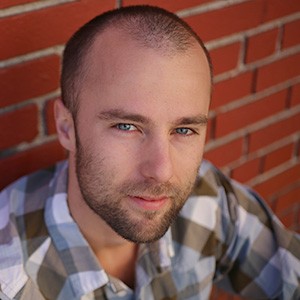
Clayton Community Centre – A North American First in Passive House | 10:30am – 11:30am
Public buildings offer key opportunities for municipalities to lead market change and demonstrate how buildings can integrate low carbon and low energy goals with other design ambitions.
Join HCMA Architecture + Design, Integral Group, and Morrison Hershfield as they share their experience working collaboratively on the largest Community Centre in North America targeting Passive House certification: the 76,000 sqf Clayton Community Centre located in the City of Surrey, British Columbia. Through sharing their Passive House journey, the leading practitioners will highlight the potential an integrated design approach offers in overcoming wide-ranging challenges to achieve Passive House Certification and a low carbon operational recreation centre. From high internal heat gains to a hybrid ventilation system and a robust envelope design, the architectural, mechanical, and envelope teams will share multiple tips and tricks to successfully design and build large-scale Passive House projects.
Speakers:
- Zina Berrada | HCMA Architecture
- Stuart Hood, Managing Principal | Integral Group
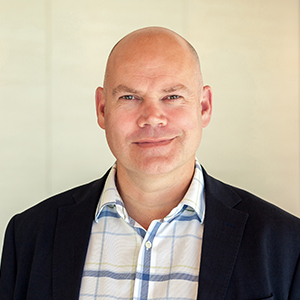
Wellness in the Workplace | 11:00am – 12:00pm
From the 2018 Global Climate Action Summit, to the updated IPCC report and the announcements from the World Health Organization, the message is becoming even more clear – climate change is our biggest health concern and we are facing a climate emergency. Beyond the effects of wildfires, heat waves, sea level rise, flooding, and drought associated with climate change – mental and emotional health epidemics related to high-stress lifestyles are one of the top threats plaguing our society today. How do we navigate these hyper-global and deeply personal issues at the building, community, and corporate level? Action within the building industry requires purposeful decision-making at all levels, informed by experience in sustainable and human wellness design. Through a holistic lens, we look back to the traditional definition: sustainability = people + planet + profit.
In this presentation, Emily will present approaches from leading companies around the world with respect to wellness in the workplace, exploring relationships between the built environment and corporate policy, which is becoming ever more prevalent in third-party certifications and standards. Where is the market going in office space with respect to wellness? What does this mean to architects, owners, developers, contractors and engineers?
Case studies presented in this session will include: The BCI Victoria Headquarters (Fitwel certified), Vancouver Centre II (WELL certification target), and Integral Group’s portfolio approach to improving the workplace environment and “walking the walk”.
Speakers:
- Emily Codlin, Senior Sustainability Advisor | Integral Group
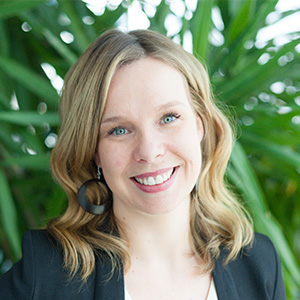
Demystifying the Black Box – Energy Modeling Processes and Best Practices | 11:15am – 12:15pm
This presentation will provide insights on what adoption of the BC Energy Step Code means in practice. It will also help uncover common communication barriers within teams and facilitate the understanding of how energy modelling can be used at different stages of design. This empowers all stakeholders to work together in a truly integrated fashion, making data-driven design decisions from the start that meet the sustainability target of projects within budget.
Throughout the session, Ali Nazari will:
- Provide an overview of the BC Energy Step Code.
- Share understanding of the interactions of different building components on buildings’ energy performance.
- Demonstrate the appropriate uses of energy modelling at each phase of the design process (i.e. concept design, schematic design, design development and construction documentation phases).
- Uncover common communication barriers between teams, including architects, mechanical/electrical engineers, envelope consultants, developers and rating authorities.
Speakers:
- Ali Nazari, Senior Principal, Director of Sustainability | Integral Group

For more information and to register please visit BUILDEX Vancouver.
Speaker: Andy Chong, Managing Principal | Stuart Hood, Managing Principal | Ellie Niakan, Principal | Ali Nazari, Principal | Tyler Disney, Associate | Emily Codlin, Senior Sustainability Designer | Ruffy Ruan, Project Manager
